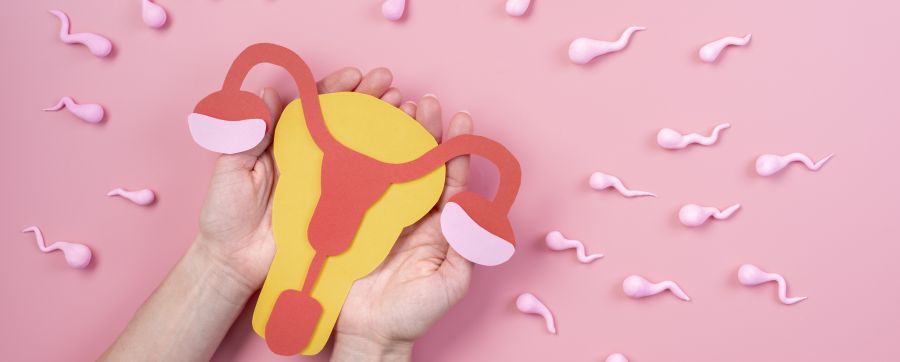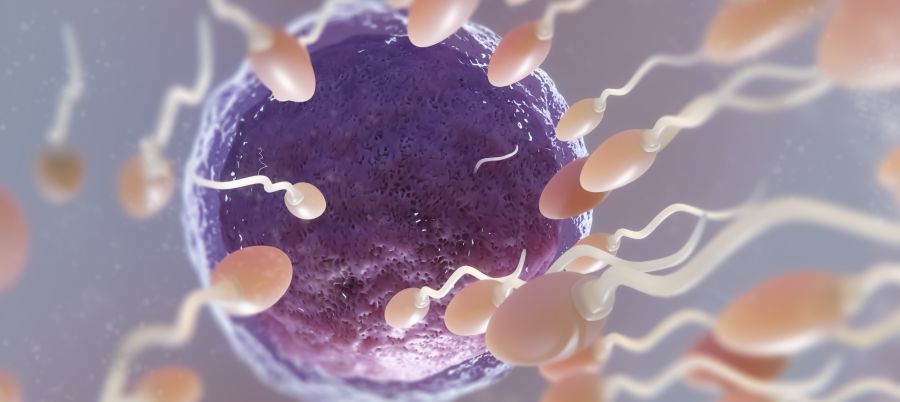Recognizing fertility warning signs early can make a significant difference in your journey to parenthood. While every woman's reproductive health is unique, certain symptoms may indicate underlying fertility challenges that deserve professional attention and care.
Understanding Female Fertility Warning Signs
Your body often provides subtle clues about your reproductive health long before you start trying to conceive. Recognizing these signs isn't about creating worry—it's about empowering you with knowledge to take proactive steps toward achieving your family goals.
At Avida Fertility, we see women every day who wish they had recognized these signs earlier. The good news is that most fertility challenges can be effectively addressed with proper diagnosis and treatment. Let's explore the seven key signs that may indicate fertility concerns.
Sign 1: Irregular or Absent Menstrual Cycles
Your menstrual cycle serves as a window into your reproductive health. A normal cycle typically ranges from 21 to 35 days, with consistent patterns month to month.
| Cycle Pattern | What It May Indicate | When to Seek Help |
|---|---|---|
| Cycles shorter than 21 days | Possible hormonal imbalances or ovarian dysfunction | If pattern persists for 3+ months |
| Cycles longer than 35 days | PCOS, thyroid disorders, or ovulation issues | If occurring regularly |
| Completely absent periods | Hormonal disorders, stress, or reproductive system issues | If missed for 3+ months (not pregnant) |
| Highly unpredictable cycles | Underlying hormonal imbalances | If no consistent pattern emerges |
According to Dr. Sarah Johnson, a reproductive endocrinologist at Stanford University, "Irregular cycles are often the first sign of ovulatory dysfunction, which affects approximately 25% of women with fertility challenges" (Johnson, 2023).
If you're experiencing irregular cycles, tracking your periods can provide valuable information for your fertility specialist. Consider using a fertility app or simple calendar to document cycle length, flow intensity, and any associated symptoms.
Sign 2: Severe Menstrual Pain and Heavy Bleeding
While some discomfort during menstruation is normal, severe pain that interferes with daily activities or extremely heavy bleeding may signal underlying conditions affecting fertility.
| Symptom | Possible Condition | Fertility Impact |
|---|---|---|
| Debilitating cramps | Endometriosis | Can affect egg quality and implantation |
| Heavy bleeding (changing pad/tampon hourly) | Fibroids or polyps | May interfere with embryo implantation |
| Pain during intercourse | Endometriosis or pelvic inflammatory disease | Can reduce conception chances |
| Bleeding between periods | Hormonal imbalances or structural issues | May indicate ovulation problems |
Endometriosis affects approximately 10% of reproductive-age women and can significantly impact fertility if left untreated. The condition occurs when tissue similar to the uterine lining grows outside the uterus, potentially affecting egg quality and creating barriers to conception.
Sign 3: Hormonal Imbalance Symptoms
Hormones orchestrate your reproductive system, and imbalances can manifest in various ways that may affect your ability to conceive.
| Physical Signs | Emotional/Mental Signs | Potential Hormonal Issues |
|---|---|---|
| Excessive hair growth (face, chest) | Mood swings | Elevated androgens (PCOS) |
| Hair loss or thinning | Depression or anxiety | Thyroid disorders |
| Unexplained weight gain/loss | Difficulty concentrating | Insulin resistance |
| Acne breakouts | Fatigue | Hormonal fluctuations |
| Breast tenderness | Sleep disturbances | Progesterone imbalances |
These symptoms often interconnect, creating a complex picture that requires professional evaluation. Hormone testing can provide crucial insights into your reproductive health and guide appropriate treatment strategies.
Sign 4: Age-Related Fertility Decline
While age isn't a "symptom" per se, it's a crucial factor in female fertility that many women underestimate. Understanding age-related changes helps you make informed decisions about your reproductive timeline.
| Age Range | Monthly Conception Rate | Key Considerations |
|---|---|---|
| 20-24 years | 20-25% | Peak fertility years |
| 25-29 years | 15-20% | Still optimal fertility |
| 30-34 years | 10-15% | Gradual decline begins |
| 35-39 years | 5-10% | More pronounced decline |
| 40+ years | 2-5% | Significant challenges increase |
Dr. Maria Rodriguez from the American Society for Reproductive Medicine notes, "While these statistics might seem concerning, it's important to remember that many women over 35 conceive naturally, and assisted reproductive technologies have excellent success rates for older patients" (Rodriguez, 2023).
If you're over 35 and have been trying to conceive for six months, or over 40 and trying for three months, consider consulting a fertility specialist. Early intervention can significantly improve your chances of success.
Sign 5: History of Pelvic Infections or STIs
Previous pelvic infections or sexually transmitted infections can create lasting effects on your reproductive system, even after successful treatment.
| Condition | Potential Fertility Impact | Screening/Treatment Options |
|---|---|---|
| Chlamydia | Fallopian tube scarring | HSG test, laparoscopy if needed |
| Gonorrhea | Pelvic inflammatory disease | Antibiotic treatment, tube assessment |
| Pelvic Inflammatory Disease | Tube blockage, adhesions | Imaging studies, surgical repair |
| Endometritis | Implantation problems | Endometrial biopsy, treatment |
Many women don't realize they've had these infections, as they can be asymptomatic. If you have a history of pelvic pain, unusual discharge, or diagnosed STIs, discuss this with your fertility specialist. Comprehensive fertility testing can identify any resulting complications.
Sign 6: Unexplained Weight Changes and Metabolic Issues
Your weight and metabolic health directly influence your reproductive hormones and fertility potential. Both significant weight gain and weight loss can disrupt ovulation.
| Weight-Related Issue | Fertility Impact | Management Approach |
|---|---|---|
| BMI over 30 | Irregular ovulation, reduced IVF success | Nutritional counseling, gradual weight loss |
| BMI under 18.5 | Absent periods, hormonal disruption | Healthy weight gain, hormone support |
| Rapid weight changes | Cycle irregularities | Identify underlying causes |
| Insulin resistance | PCOS, ovulation problems | Metformin, lifestyle modifications |
Research shows that even a 5-10% weight change can significantly impact fertility outcomes. However, extreme dieting or rapid weight loss can be counterproductive. Working with healthcare providers to achieve a healthy weight through sustainable methods is key.
If you're struggling with unexplained weight changes, consider evaluation for thyroid disorders, PCOS, or other metabolic conditions that commonly affect fertility.
Sign 7: Difficulty Conceiving After 6-12 Months of Trying
Perhaps the most obvious sign, but one that many couples ignore, hoping things will improve naturally. The timeline for seeking help depends on several factors.
| Age/Situation | Time to Seek Help | Success Rate with Treatment |
|---|---|---|
| Under 35, regular cycles | After 12 months | 85-90% within 2 years |
| Over 35 | After 6 months | 75-80% within 2 years |
| Over 40 | After 3 months | 60-70% with appropriate treatment |
| Known fertility risk factors | Before trying or immediately | Varies by condition |
According to the American College of Obstetricians and Gynecologists, "Early evaluation and treatment of fertility issues can significantly improve outcomes and reduce the emotional stress associated with prolonged attempts to conceive" (ACOG, 2023).
Remember, seeking help doesn't mean giving up on natural conception—it means getting the information and support you need to make informed decisions about your reproductive health.
When to Consult a Fertility Specialist
Recognizing these signs is the first step, but knowing when to seek professional help is equally important. You don't need to experience all these symptoms to warrant a consultation.
Consider scheduling an appointment if you notice any combination of these warning signs, especially if they're affecting your quality of life or causing concern about your fertility potential.
During your initial consultation, your fertility specialist will likely recommend several diagnostic tests to evaluate your reproductive health comprehensively. These may include hormone testing, imaging studies, and assessments of your ovarian reserve.
Treatment Options and Hope for the Future
The encouraging news is that most fertility challenges can be effectively addressed with modern reproductive medicine. Treatment options range from simple lifestyle modifications and fertility medications to advanced procedures like IVF and donor egg treatments.
At Avida Fertility, we've helped thousands of women overcome fertility challenges and achieve their dreams of parenthood. Our comprehensive approach includes not only advanced medical treatments but also emotional support and guidance throughout your journey.
Many of our patients initially worried that recognizing these signs meant their fertility dreams were over. Instead, early recognition and appropriate treatment have led to successful pregnancies and healthy babies.
Frequently Asked Questions
Can stress cause fertility problems in women?
Yes, chronic stress can affect hormone production and ovulation. While occasional stress is normal, persistent high stress levels may impact your menstrual cycle and fertility. Managing stress through relaxation techniques, exercise, and counseling can be beneficial.
Are fertility problems always permanent?
Not at all. Many fertility issues are treatable or manageable with appropriate medical intervention. Even conditions like blocked fallopian tubes or severe endometriosis can often be addressed through surgery or assisted reproductive technologies.
How accurate are at-home fertility tests?
At-home tests can provide some useful information, particularly for tracking ovulation, but they cannot replace comprehensive fertility evaluation by a specialist. Professional testing provides much more detailed and accurate information about your reproductive health.
Should I change my lifestyle before seeing a fertility specialist?
While healthy lifestyle changes are always beneficial, don't delay seeking professional help while trying to optimize your health. You can work on lifestyle improvements while undergoing fertility evaluation and treatment.
What's the difference between infertility and fertility problems?
Fertility problems refer to any issues that might affect your ability to conceive, while infertility is specifically defined as the inability to conceive after 12 months of regular, unprotected intercourse (or 6 months if over 35). Many fertility problems can be resolved before they progress to infertility.
Taking the Next Step
Recognizing potential fertility warning signs is an act of self-advocacy and empowerment. These signs don't define your fertility journey—they simply provide valuable information that can guide you toward appropriate care and treatment.
Remember that fertility challenges are incredibly common, affecting approximately one in eight couples. You're not alone in this journey, and there are more treatment options available today than ever before.
If you've recognized any of these signs in yourself, consider it an opportunity to take proactive steps toward understanding and optimizing your reproductive health. Early intervention often leads to better outcomes and can save you time, emotional stress, and financial resources in the long run.
The path to parenthood isn't always straightforward, but with proper medical support, most fertility challenges can be successfully addressed. Your dreams of building a family are valid and achievable, regardless of the obstacles you may face along the way.
Considering fertility evaluation or treatment? Avida Fertility is here to support and guide you on your fertility journey. Our experienced team combines cutting-edge technology with compassionate care to help you achieve your family-building goals. Reach out today for a personalized consultation and take the first step towards building your family with confidence.






.png)







.svg)
.svg)
